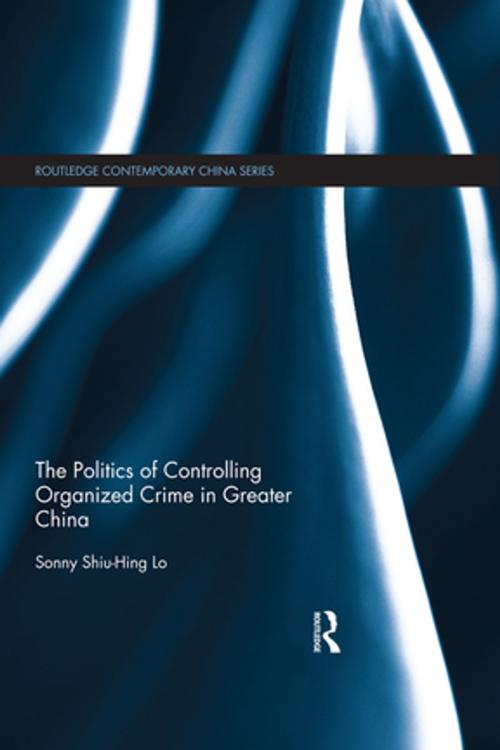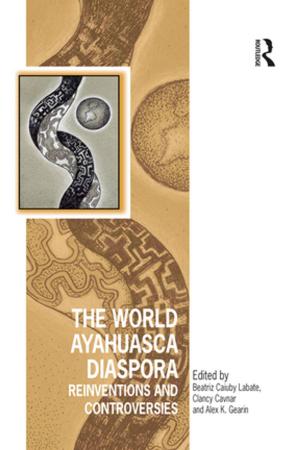The Politics of Controlling Organized Crime in Greater China
Nonfiction, Social & Cultural Studies, Social Science, Cultural Studies, Ethnic Studies, Crimes & Criminals, Criminology, Political Science| Author: | Sonny Shiu-Hing Lo | ISBN: | 9781135042127 |
| Publisher: | Taylor and Francis | Publication: | December 14, 2015 |
| Imprint: | Routledge | Language: | English |
| Author: | Sonny Shiu-Hing Lo |
| ISBN: | 9781135042127 |
| Publisher: | Taylor and Francis |
| Publication: | December 14, 2015 |
| Imprint: | Routledge |
| Language: | English |
In China, the central government has the political will to control organized crime, which is seen as a national security threat. The crux of the problem is how to control local governments that have demonstrated lax enforcement without sufficient regulation from the provincial governments. The development of prostitution, underground gambling and narcotics production has become so serious that the central government has to rely on anti-crime campaigns to combat these "three evils".
This book explores the specific role of government institutions and agencies, notably the police, in controlling organised and cross-border crime in Greater China. Drawing heavily on original empirical data, it compares the both the states of the People’s Republic of China and Taiwan, as well as city-states Hong Kong and Macao. This region has become increasingly economically integrated, and human interactions have been enhanced through improved trade relations, tourism, and increased individual freedom. The book argues that the regime capacity of crime control across Greater China has been expanded through regional and international police cooperation as well as anti-crime campaigns. It suggests that a strong central state in China is necessary to rein in the local states and to prevent the risk of deteriorating into a political-criminal nexus.
Focusing on regime capacity in crime control, regime autonomy from crime groups, and regime legitimacy in the fight against organized crime, this thought-provoking book will be of great interest to students and scholars of Chinese politics and criminology more broadly.
In China, the central government has the political will to control organized crime, which is seen as a national security threat. The crux of the problem is how to control local governments that have demonstrated lax enforcement without sufficient regulation from the provincial governments. The development of prostitution, underground gambling and narcotics production has become so serious that the central government has to rely on anti-crime campaigns to combat these "three evils".
This book explores the specific role of government institutions and agencies, notably the police, in controlling organised and cross-border crime in Greater China. Drawing heavily on original empirical data, it compares the both the states of the People’s Republic of China and Taiwan, as well as city-states Hong Kong and Macao. This region has become increasingly economically integrated, and human interactions have been enhanced through improved trade relations, tourism, and increased individual freedom. The book argues that the regime capacity of crime control across Greater China has been expanded through regional and international police cooperation as well as anti-crime campaigns. It suggests that a strong central state in China is necessary to rein in the local states and to prevent the risk of deteriorating into a political-criminal nexus.
Focusing on regime capacity in crime control, regime autonomy from crime groups, and regime legitimacy in the fight against organized crime, this thought-provoking book will be of great interest to students and scholars of Chinese politics and criminology more broadly.















